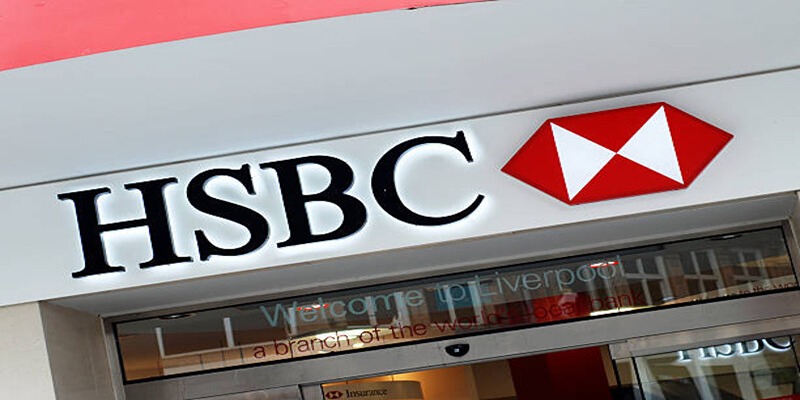Robinhood Fined $65M for Misleading Customers on Key Information
Sep 21, 2024 By Pamela Andrew
In a major enforcement action, the SEC accused Robinhood Financial LLC of several violations of consumer communications and order execution. Famous for its user-friendly trading platform and retail investor appeal, the business has settled these claims for $65 million. This Robinhood fine and settlement expose brokerage sector issues like transparency, optimum trade execution, and opaque order flow payment.
Background of Charges
Robinhood Fintech was accused of misrepresenting its revenue sources and transaction execution from 2015 to late 2018. Robinhood failed to disclose its practice of taking money from trading firms to route user orders, according to the SEC. Robinhood's revenue model relied on "payment for order flow," but the company didn't fully disclose how this affected trade execution.
Robinhood advertised "commission-free" trading, which attracted many people. However, the SEC determined that this marketing promise did not reflect consumers' real costs, which were typically executed at lower prices than other brokers. Even with commission savings, Robinhood's clients lost $34.1 million due to the disparities.
Untruthful Communications
Robinhood's misrepresentations about order execution quality are key to the SEC's complaint. In its FAQ section, Robinhood Fintech erroneously claimed that its transaction execution was equivalent to or better than that of its competitors from October 2018 to June 2019. Robinhood's strong order flow rates from trading businesses contributed to lower execution prices; hence, this claim was inaccurate.
Robinhood used deceptive statements in its marketing strategy throughout rapid growth. Robinhood Fintech gained and kept customers by offering the greatest trade execution. However, the brokerage industry's ethical and legal standards have been questioned due to its platform's refusal to disclose trading costs.
Effect on Customers

Lower Trade Prices Than Competitors
SEC found that Robinhood's tactics caused customers to receive lower trade execution prices than those of rival brokers. Robinhood needed to have gotten its users the best execution terms by sending orders to trading firms for payment. Thus, customers often received lower trade prices than with other brokerages. This mismatch cost customers $34.1 million, demonstrating their financial hardship.
Marketing Deception
Robinhood marketed its trade execution quality misleadingly, increasing financial damage. It was incorrect to claim that the firm's execution quality met or exceeded that of its competitors. Customers thought they were getting optimal trade execution, but due to false marketing, their orders were executed at worse prices. The disparity between marketing promises and execution excellence deceived customers about Robinhood trading expenses, worsening their financial losses.
Commission-Free Trading vs. Execution Quality
Robinhood Fintech advertised commission-free trading, which attracted many users. By removing commissions, this technique initially saved money, but execution quality suffered. Robinhood relied on order flow payments, which typically lowered trade prices. This incident highlights a basic brokerage sector issue: the trade-off between lower commission costs and lower execution quality. Suboptimal trade execution trumped commission savings for many consumers.
Brokerage Industry Implications
The Robinhood case underscores a major issue for brokerage businesses, especially those offering low-cost or free trading. It stresses order execution transparency and fairness. Customers face enormous risks when choosing between commission-free trading and execution quality, and enterprises must navigate these risks to avoid misrepresenting them or harming them financially. Addressing these concerns will be crucial to preserving confidence and regulatory compliance as the brokerage sector evolves.
Regulation Response and Settlement
Robinhood has consented to a cease-and-desist for these offenses. This judgment requires the firm to stop violating the Securities Act of 1933's antifraud and the Securities Exchange Act of 1934's recordkeeping rules. They also received a $65 million civil penalty.
Robinhood must hire an independent consultant to study and improve its policies and practices in addition to the cash penalty. This consultant will improve customer communications, payment transparency for order flow, and order execution. The goal is to fix SEC issues and prevent future violations.
Broader Brokerage Industry Impact
The SEC's case against Robinhood reminds brokerage firms of their consumer obligations. The example emphasizes the importance of transparency in describing how a firm gets income and how it may affect trade execution quality.
As new technology-driven brokerage businesses enter the market, fairness, transparency, and regulatory compliance must remain fundamental. The Robinhood case shows that financial services innovation does not shield corporations from securities regulations. Brokerage businesses must accurately sell their services and not misrepresent trading costs and benefits. The case also emphasizes the need for strict internal controls and oversight to maintain legal and regulatory compliance.
Future View

Brokerage businesses using new technologies and business models are expected to face more regulatory scrutiny. New tools and platforms in the financial industry may need regulatory agencies like the SEC to increase oversight to maintain legal and ethical compliance. The Robinhood fine case shows that authorities will continue to monitor transparency, execution quality, and marketing activities.
Transparency and Accountability
We expect future regulations to emphasize transparency and accountability. Firms must give clear and accurate revenue information, especially about order flow payments. The SEC's Robinhood Fintech response emphasizes the significance of honest client communication about trading service prices and quality. Companies that misrepresent their services may face comparable regulatory issues to protect investors and market integrity.
Managing Conflicts of Interest and Compliance
Brokerage businesses must be proactive to comply with changing requirements. This involves addressing conflicts of interest in revenue models or business practices. Firms should create strong internal controls on Robinhood fine, audit regularly, and seek independent evaluations to detect and fix errors. By being proactive, companies can avoid regulatory penalties and build trust.
Restoring Trust and Preventing Breaches
Robinhood must make some changes to win customer trust. The SEC's financial penalties, policy improvements, and independent oversight are meant to help Robinhood fix previous mistakes and prevent future infractions. These steps are necessary to restore customer trust and demonstrate regulatory compliance and ethics.
Conclusion
The SEC's accusations against Robinhood Financial LLC and settlement highlight brokerage sector transparency and trade execution concerns. Robinhood fine case addressed these errors by paying a $65 million penalty and improving its internal standards. In an age of rapid technology advancement and market complexity, the case highlights brokerage firms' consumer obligations.

Unlocking the Benefits of FHA ARMs: A Homebuyer’s Guide

Investment Banking Careers With The Highest Salary

Treasury Calls for More Oversight on Bank-Fintech Collaborations

What Is A Personal Loan?

What Is Subordinated Debt And What Are the Possible Consequences?

How do Splitit payments work?

How Much Budget Should Fintech Companies Allocate for Marketing?

2024's Top Reverse Mortgage Options: An Insightful Exploration

Navigating Your Options: An In-Depth Review of HSBC Personal Loans
